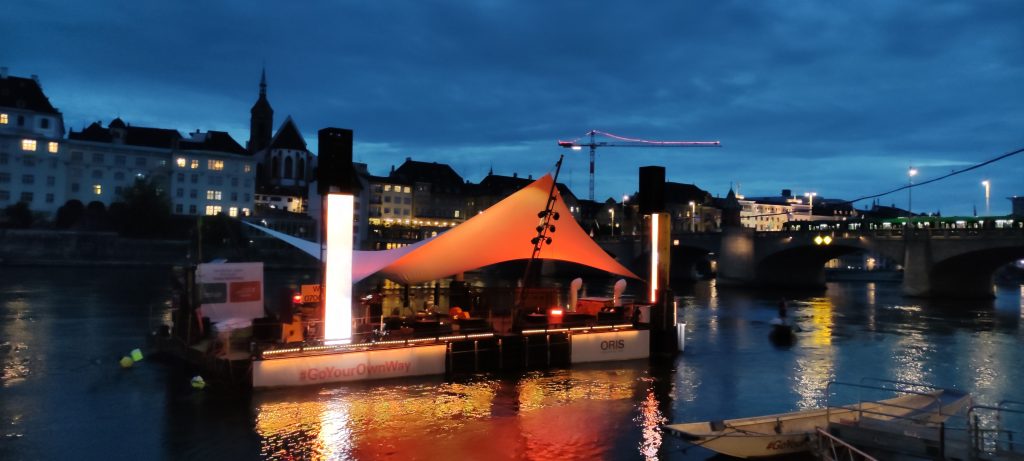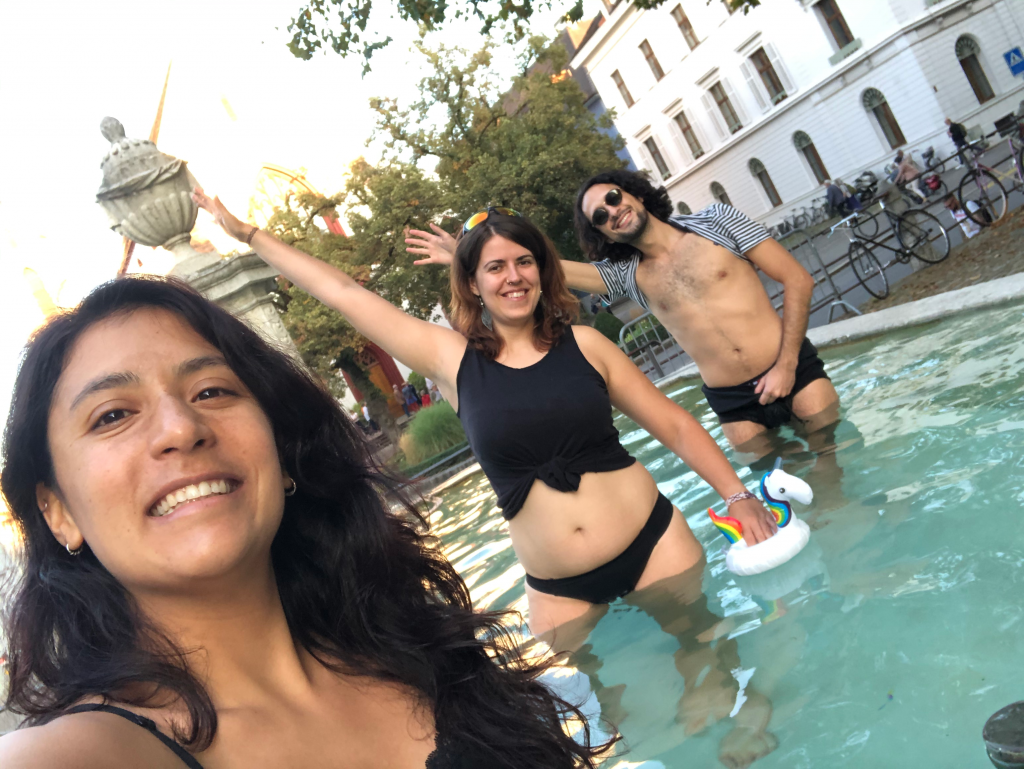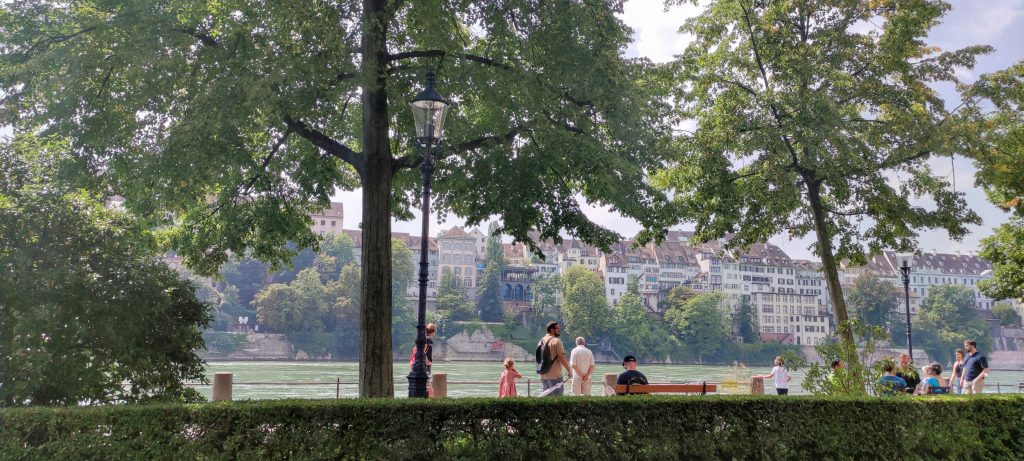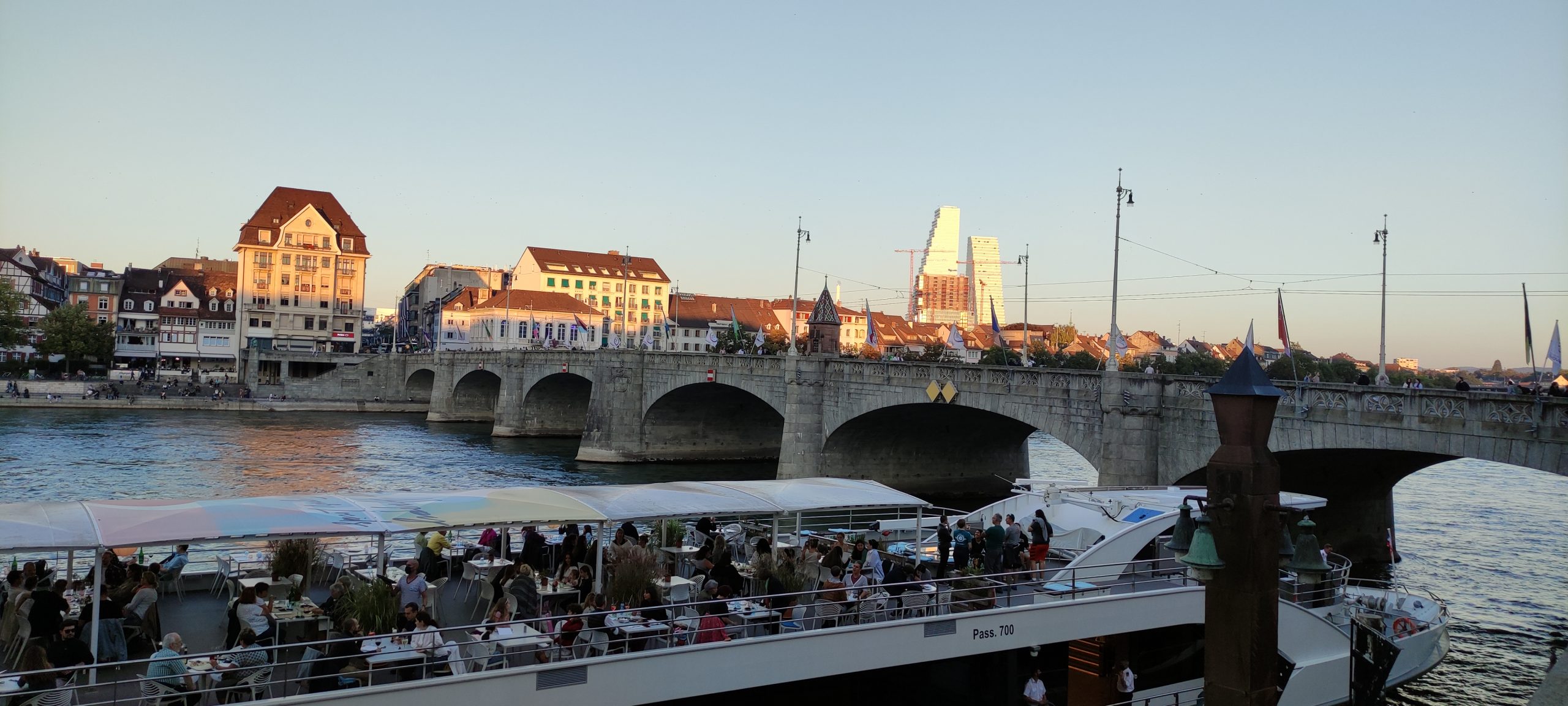The most impressive European mountains keep a sharp eye on the most mysterious country in Europe. Switzerland is the ninth country where I’ve lived so far and there is a lot for me to explore. For some strange reason, despite regularly traveling and living in different parts of Europe, I rarely met Swiss people. And when I did, they seemed different. I got an impression that their head was up in the clouds and they couldn’t see what was happening on the ground.
The Swiss made a career in storing financial secrets. The most awkward question that you can ask a Swiss person is “How much money do you earn?” The Swiss are willing to give up this number only to very special people who know them for dozens of years. Even after that, some mystery prevails. As a Swiss man told me: “I still can’t compare my job to my friend’s. I don’t know about the benefits package. I don’t know if he owns a house!”
So how rich is Switzerland? I looked for clues in small villages in the canton of Basel-Land. Low rolling hills remind me of my home region Kysuce in Slovakia. A typical image from Kysuce: an old hut in the middle of nowhere, scattered piles of wood, rusty Škoda car proudly parked in front it. The Swiss image: a boutique version of the Slovak hut, also in the middle of nowhere. Neatly stacked piles of wood with Tetris-like precision. The newest model of Tesla at the entrance.
Fingers crossed that I can keep the Swiss healthcare costs a mystery, for as long as I can. For now, as a perfectly healthy individual, not seeing any doctor, I pay “only” 365 CHF per month. Here’s an example of a standard procedure to stay healthy in Switzerland: an encephalitis vaccine costs 500 CHF per dose. What else can you get for that money? A rave party in a hot air balloon. Sophie’s choice!
Luckily, the best things in my town, Basel, are still cheap. The river banks of Rhine regularly fill up with people enjoying running, barbecues, book reading, and day-drinking.
Floating down the Rhine with clothes in a waterproof bag is a popular form of transportation in the summer months.

My favorite free activity in Basel is swimming in fountains.
It used to be my drunk dream when I was coming home from summer parties. Anywhere else in the world you get a fine. Basel town hall provides a map of available fountains. Some of them even have a smaller pool perfect to cool my beer! Watch out for local children making giant splashes when you pass a fountain.

When I arrived in July 2021, Swiss people seemed as cold and closed as their bank safes.
Small talk always died after I explained where I was from and why I was in Switzerland. Zero interest. If a “physicist cutting bones with lasers” doesn’t sound interesting, I seriously don’t know what job does. But I’m slowly making progress. I went on my first hike and I happened to get lost on the first crossroad. I asked a Swiss couple for help. Nice people, around my age. They recommended me the necessary phone apps, took me to the places where they sell home-made jam and walked most of the path with me! I was so happy to unleash my curiosity – I asked plenty of questions about Switzerland. Swiss people aren’t different from any other nation when it comes to answering these questions. They proudly explained what’s so great about Switzerland. Once they were in a good mood, they actually became curious about me and Slovakia. So what’s my strategy now when meeting Swiss people? Let them make the first step. Make them interested. Smile.
And the most important lesson – take it slow!
I learned this when I was saying goodbye to my hiking partners. I thought it would be a great idea to meet them again, so I asked them for their phone numbers. The woman’s face immediately lost traces of any emotions. She gave me her number and introduced time pressure in the conversation. Veni, vidi, failed.
Asking for help is a great strategy for connecting with people. It’s impressive how far the Swiss can go to help a stranger. Once upon a time, my colleague Eva went for a short bike ride to a German supermarket (which is a very popular sport activity in Basel). She placed her backpack in the basket behind her seat. When she arrived to Germany, she was shocked – her backpack was gone! At first, she rode all the way back home to see if she could find it. Soon it became clear that it was stolen when she stopped at traffic lights. Since many people in Basel take off their backpacks, she assumed, after 3 years of living here, that it’s safe. The police did not speak English and didn’t even help her to call the locksmith. The following day she received an email from the secretary. Her backpack was found in the Rhine by a local fisherman. He saw an Arabic-looking man throwing the backpack into the river. The fisherman immediately caught it. He found a badge from the university and contacted the HR. Then he met Eva in a park, together with his little boy, who had a task to return the backpack.
Because of the fisherman’s quick reaction, Eva’s passport didn’t even get wet.

It feels like doing the right thing is a rule in Switzerland. Rules were made to be followed not to be questioned. Let’s take a financial declaration form at my university as an example. There is an Excel form that needs to be filled. Then I need to print it, sign it by hand, scan it, email it to my boss to electronically sign it, print it again and place it in an envelope sent to the uni headquarters (in the same town). I also need to attach the corresponding invoices. Guess what? I made a mistake with my first declaration form! And this is what followed: 1. I got an email from the HR explaining what’s wrong and how to correct it. There was a scanned paper with the corrections in the attachment. 2. One week later, I got two letters from the HR. One contained the corrected declaration form that I already saw in the email. The other one contained the invoice. What an effort to teach me how to fill declaration forms!

I frequently go to electronic music festivals. The access is allowed to people with covid vaccination, a negative test or a proof of recovery from the disease.
The security always checks the backpacks. You would expect they are looking for weapons or drugs, right? Not true. They take a brief look to see if you carry food or drinks.
Then you need to throw them away at the entrance. Even an empty bottle. I smuggled a flexible plastic bottle because it doesn’t look like a bottle. At some point during the festival I needed to sit down in the chillout zone. I was drinking from my bottle. I offered my water to a Swiss stranger who looked like he really needed it. He gave me a surprised look: “Is that a bottle?” “Yes”. “How did you smuggle that inside? Cheater! (nervous laughter trying to make it sound less serious)” Most of the festival people buy a bottle of soda and refill it with tasty Swiss drinking water from the toilets. Oh my god, I’m such a cheater! I cheated the catering services and saved 5 CHF.

Leave a Reply